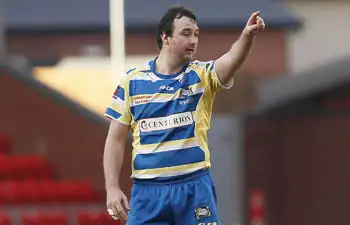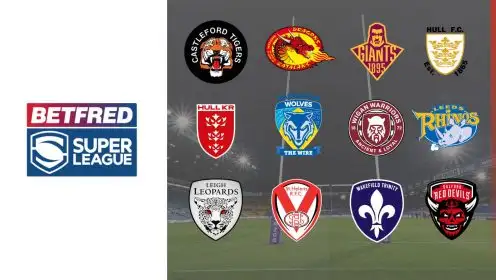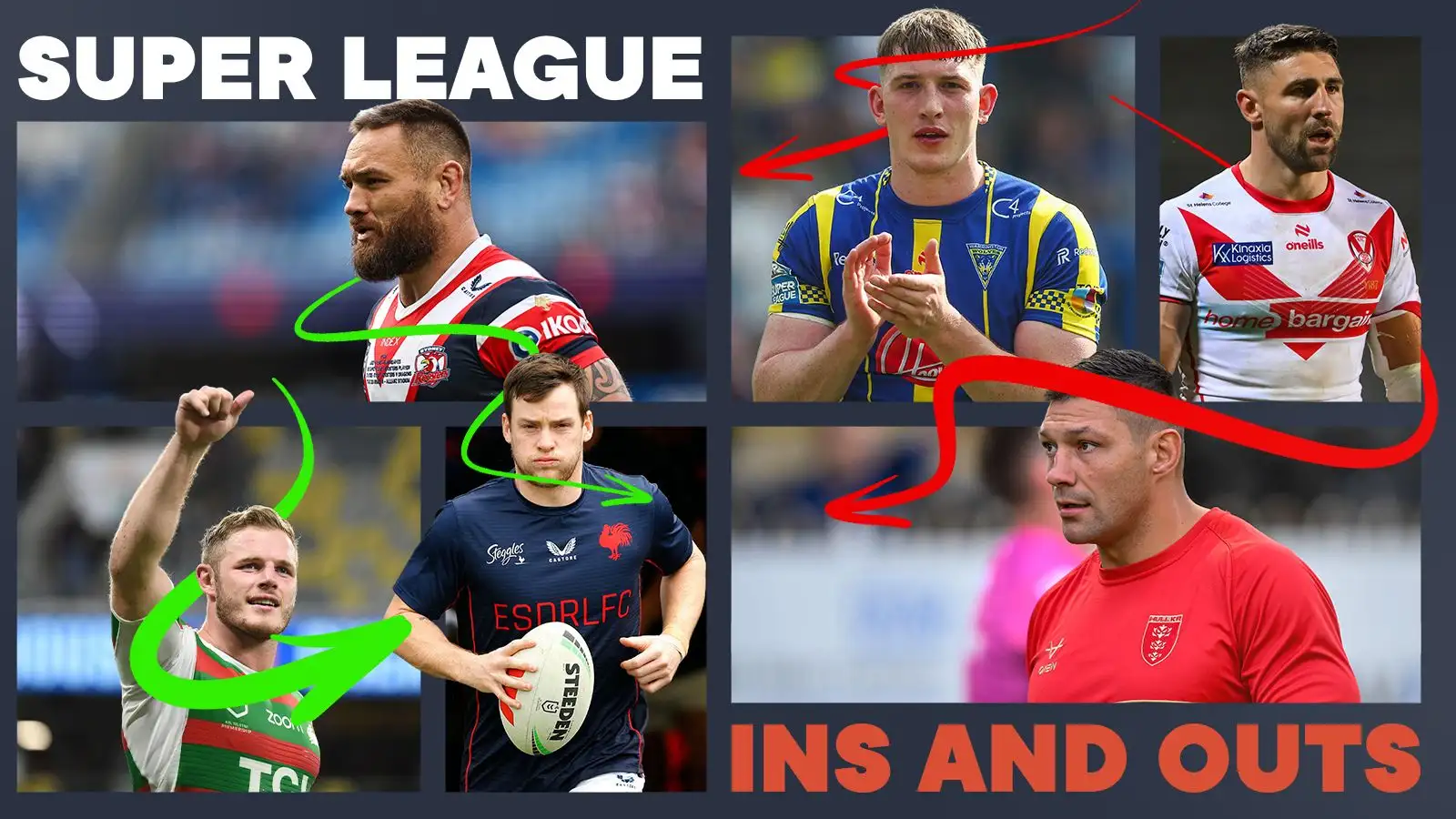Paul Cooke: ‘Judas’ lifts lid on life story

Former Hull KR and Hull FC stand off Paul Cooke has shared the story of his life in the pages of a new book.
‘Judas’, written with the help of Adrian Durham of Talksport, pulls no punches when it comes to telling Cooke’s story.
The publication of the book has helped Cooke to fulfill a promise made to his mother Christine, who died of lung cancer in June 2011.
“It’s an autobiography written with the help of Adrian Durham from Talksport Radio,” Cooke explained, speaking to Love Rugby League.
“He’s a massive Hull FC fan. He was obviously really intrigued as to why I crossed the city divide in 2007, having scored the winning try in 2005 [in the Challenge Cup final].
“He always wanted to write a book about a local player scoring that try, regardless of what happened after that.
“It all came about because he contacted me in 2011, just after my Mum had passed away.
“Unbeknownst to him, I promised my Mum I would write an autobiography based on some of the abuse we as a family had taken, when nobody really knew what the club had done to me for me to move.”
The book deals with the controversy that surrounded Cooke’s move across the city of Hull in 2007, and much of the personal controversy which came later too.
Booze caused many of Cooke’s issues, and he doesn’t shy away from talking frankly about experiences which often paint him in a bad light.
“It gives you an insight into the day-to-day, month-to-month, year-to-year living that I went through, from crossing the city in 2007, to leaving Hull KR in 2010,” he said.
“There’s a real sense of what it’s like to live in that goldfish bowl and how it affects people – not just me, but my family and friends too.
“There’s a lot of detail regarding the move and my time at Hull Kingston Rovers and what went wrong for me personally.
“There were some regretful situations I got myself into, which was my own personal decision.
“Everything was laid bare in the book, with regard to that.
“Adrian asked for total honesty, and that’s all I ever wanted to give, so it’s all in there.
“The way I got myself into trouble mentally was not dealing with the off-field pressures I was under, and making poor life decisions.
“That’s all in the book as well.
“Drink and women was my downfall!
“There’s a lot in there regarding women and alcohol, and about the stuff that can happen as a professional rugby league player.
“Where, regardless of not being an oil painting, you are someone who is quite desired.”
Having overcome many of those demons now, Cooke has enjoyed a successful 2016, helping coach Leigh in their successful quest to reach Super League.
“It was challenging,” he said.
“I joined halfway through, in June officially, so it was a number of weeks into the season. It was a difficult challenge.
“Going in, I wasn’t sure that the players believed that we could get promoted. That was the first impression I got.
“We steadily began working together as a staff and as a group, on trying to get them to buy into what we were asking of them.
“The senior players in particular I thought were a little sloppy in the first couple of weeks I was there.
“Then they really bought into it, and dragged the other players up.
“There was some really smart recruitment. The owner, Derek Beaumont, has been first class for us.”
Cooke is set to stay on for another season at Leigh, with positive talks taking place about a new deal with the Centurions in 2017.
Another string to Cooke’s coaching bow over the last few years has been his work with Doncaster Knights RUFC, where he worked with Welshman Clive Griffiths.
The role complemented his coaching role at Doncaster RL, which he undertook from 2014 to 2015.
“I spent three years there with Clive Griffiths, the cross-code legend,” he said.
“I enjoyed my spell under him. I learned a hell of a lot from him as a coach and as a manager of men, and he’s still a very good friend of mine, we speak every week.
“I learned a lot of lessons in coaching from the great man.”
Cooke believes that rugby league has more to learn from rugby union than many people think.
“It’s very tactical, there’s some very clever players,” he said.
“By clever, I don’t just mean ‘rugby clever’ but also ‘IQ clever’, as opposed to rugby league.
“And I don’t mean that disrespectfully to rugby league.
“There’s a lot more interaction with the players, and a lot more knowledge from key players.
“I thoroughly enjoyed working in union.
“Without knowing a great deal about the sport when I joined it three years ago.
“There’s some very intricate skills within the game.
“It makes it better for me to watch when you understand it a little bit more, and that league-union divide is a little bit less once you get to understand both games.”
As far as his old clubs are concerned, Cooke believes that the new combined City of Hull academy is a positive step towards the city developing more of its own talent.
“I do think it’s a good idea, because the talent from the city gets diluted at both clubs,” he said.
“Players can get picked just to fill a shirt.
“With 40 or 50 professional players from the city, there’s players who are probably never going to play top level rugby.
“To get the cream of the crop together with a coach who can develop their skills, and put them together as a team, certainly makes it easier for both clubs to pick up the talent from all over the city.
“The challenge for both clubs now is to recruit from outside of the city, which is difficult being at the end of the M62, as opposed to where I am at Leigh, where you’ve got a bit of a pick from Wigan, Widnes and the rest.
“I certainly think non-diluting it with 30 or 40 players is better than having two academies with 50 or 60 players, 30 of whom were never likely to be professional players anyway.”
Judas: The Story of Paul Cooke by Paul Cooke and Adrian Durham is published by Pitch Publishing, price £18.99



